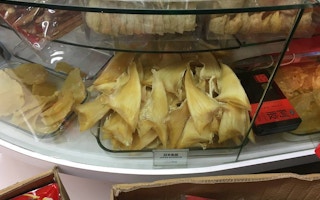The question of whether shark fin will be banned from Singapore’s public sector has been dismissed in Parliament.
Member of Parliament Louis Ng asked Singapore’s Prime Minister in a tabled question on Tuesday if the controversial dish would still be served at public sector events, and would the public service consider a written policy on avoiding serving shark’s fin soup.
Shark fin is a delicacy in some Asian cultures, but the barbaric nature of shark finning has turned public opinion against the customary dish, while shark fishing has pushed many shark species to the brink of extinction.
Ng, who ran animal welfare group Animal Concerns Research and Education Society (ACRES) before going into politics, pointed out that a number of businesses in Singapore, including major hotel chains and the country’s flagship airline, Singapore Airlines, had stopped selling and transporting shark fin.
“
Agencies decide on their respective menus based on what is prudent and appropriate for the occasion. We do not have policies specific to the serving of shark’s fin.
Chan Chun Sing, minister for trade and industry
Speaking on behalf of the Prime Minister, Chan Chun Sing, Minister for Trade and Industry and Minister-in-charge of the public service, responded: “Public agencies abide by the procurement principles of fairness, transparency and value-for-money.”
“Agencies decide on their respective menus based on what is prudent and appropriate for the occasion. We do not have policies specific to the serving of shark’s fin,” said Chan.
A turning tide of opinion
The sharks fin debate in Singapore reared its head in 2017, when a study by World Wide Fund for Nature (WWF) and Traffic identified Singapore as the world’s second largest market for shark fin.
A story in mainstream newspaper The Straits Times controversially quoted a spokesman from the fisheries trade body who claimed that Singapore sources shark fin from sustainable sources.
Environmentalists pointed out that an industry that kills around 8,000 sharks an hour, contributing to a 98 per cent reduction in shark populations over the last 15 years, and pushing 30 shark species to the point of extinction, cannot be considered sustainable.
A report from WWF in January 2017 found that a rise in awareness of shark protection and environmental concerns might be putting Singaporeans off the dish, while a study in 2016 found that three quarters of Singaporeans surveyed want government policy to curb shark fin consumption.
In response to an anti-shark fin campaign by WWF last year, 89 restaurants including Crystal Jade, Pan Pacific Hotels and online delivery service Foodpanda pledged to phase out the dish.

















